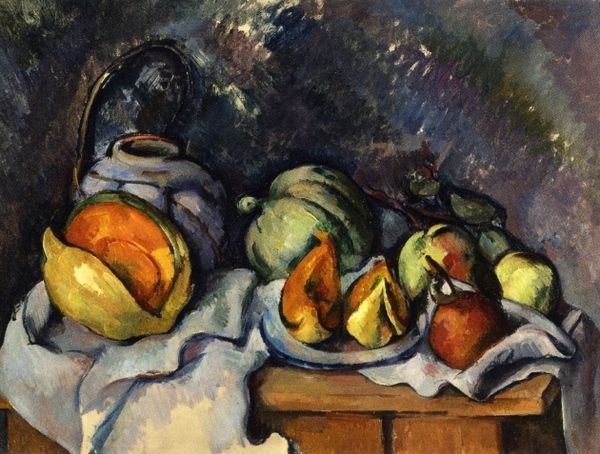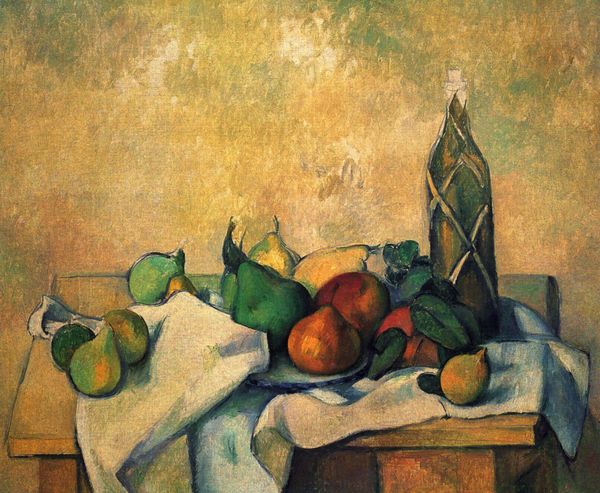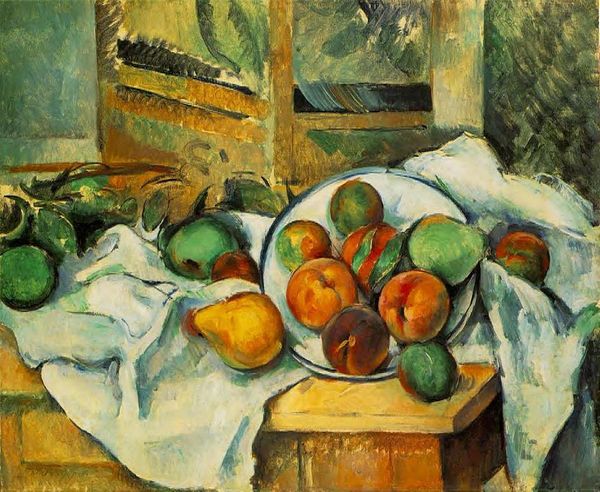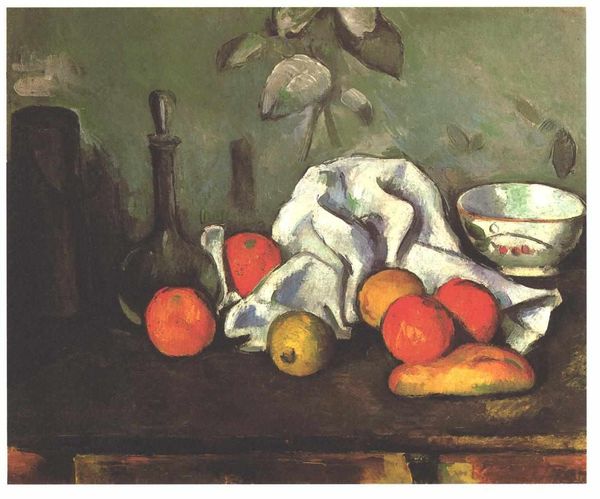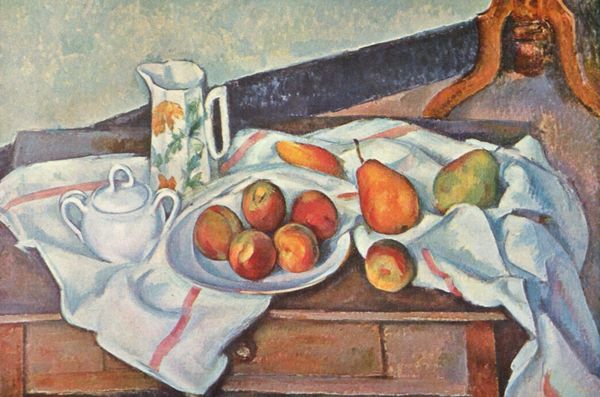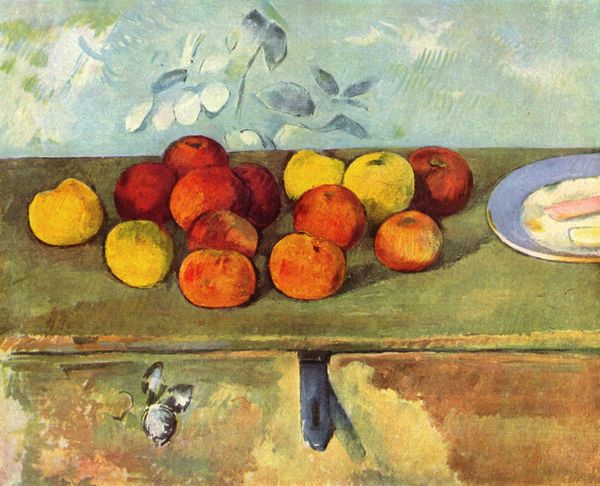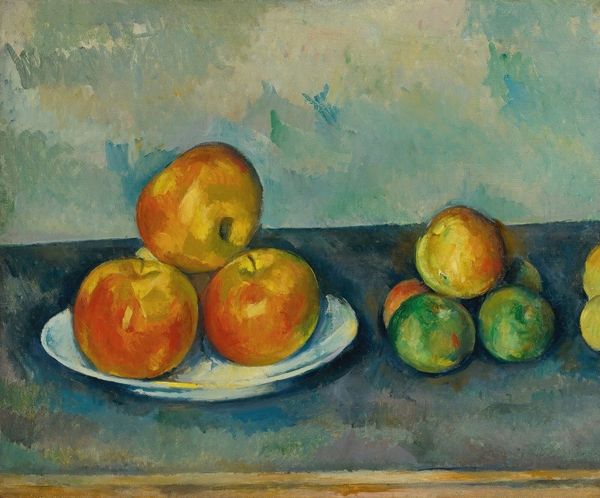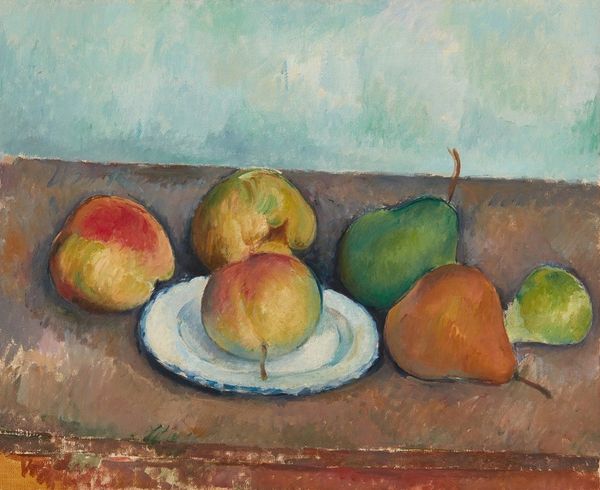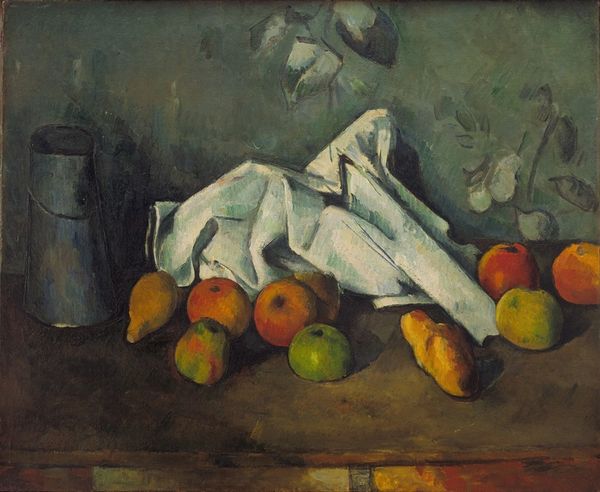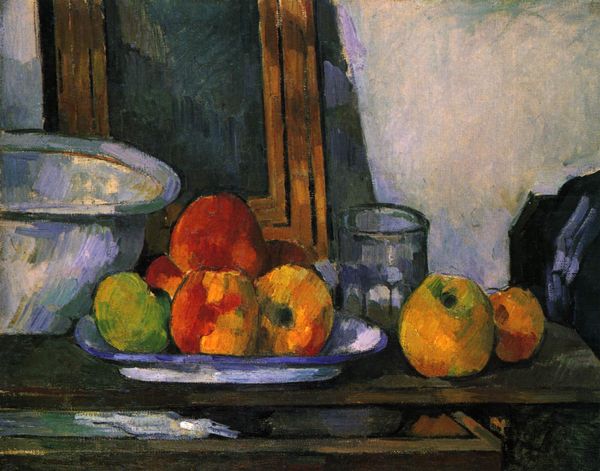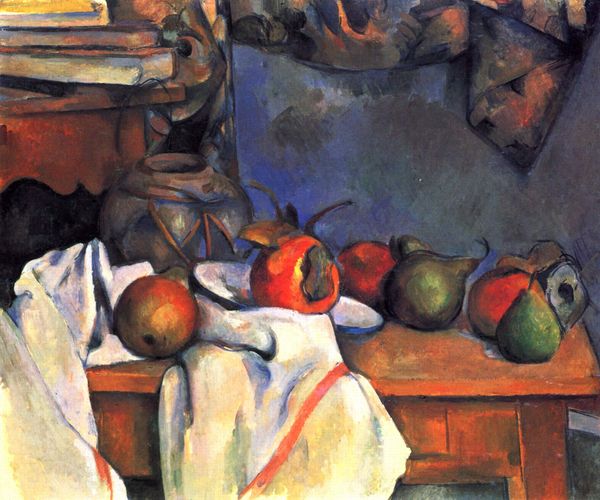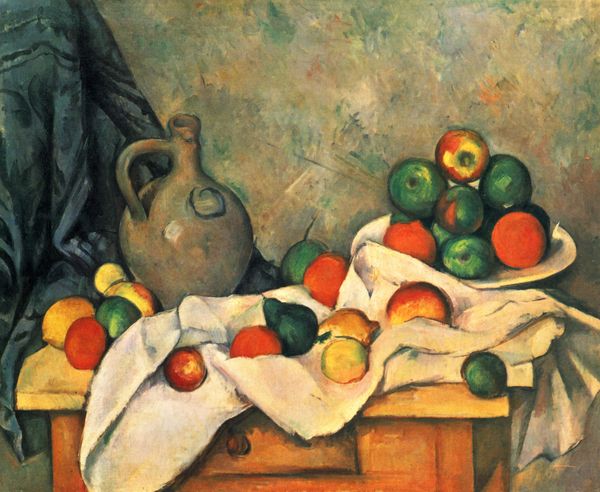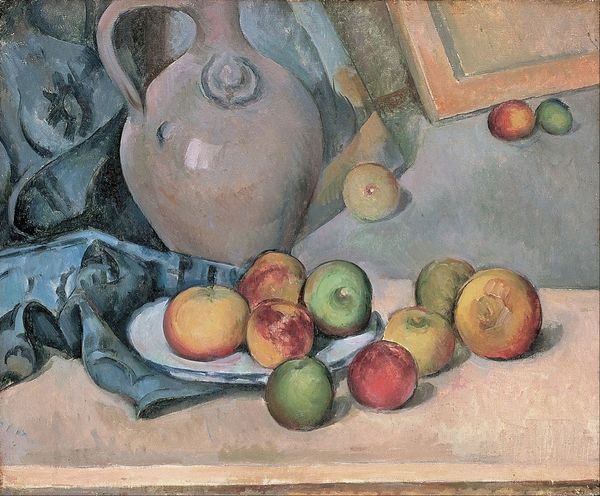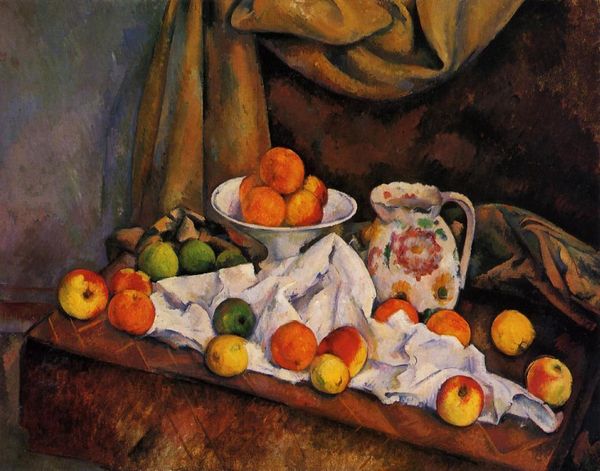
painting, oil-paint, impasto
#
portrait
#
still-life
#
painting
#
canvas painting
#
oil-paint
#
war
#
oil painting
#
impasto
#
fruit
#
russian-avant-garde
#
modernism
Copyright: Public domain US
Editor: We're looking at "Still Life. Tashkent" painted by Pyotr Konchalovsky in 1916. It's an oil on canvas, depicting fruit and a teacup on a table. The thick brushstrokes really make the fruit seem heavy and present. How do you see this still life? Curator: It’s interesting to consider the circumstances of its making. 1916 was the height of World War I; Tashkent wasn't a central conflict zone, but the upheaval impacted resources and everyday life. Considering the lusciousness of the fruit, how might its presence relate to wartime scarcity or longing? Were these locally sourced? Editor: That's a good point, considering 'still life' can mean more than just the objects themselves. I see a teacup; it evokes thoughts of domesticity. How does that tie into the concept of materiality? Curator: Well, think about the porcelain itself. Its production represents skill, trade routes, and perhaps even colonial exploitation to access those materials and forms. It is placed near common fruit – apple and pear - perhaps signifying something about status and trade in that period? The canvas itself has a story, as do the pigments of the paints used. Where did Konchalovsky source these? Who manufactured them and under what conditions? Editor: It is thought-provoking to see the connection between art, materials, labor, and their historical context. I never really looked at art this way. Curator: Art never exists in a vacuum; everything, even a simple still life, holds within it the marks and materials of a specific time and place. I hope you can apply this to your future research. Editor: Thanks; that has opened my mind to a new perspective. It's been helpful, I will definitely use this Materialist viewpoint when considering other artwork!
Comments
No comments
Be the first to comment and join the conversation on the ultimate creative platform.
